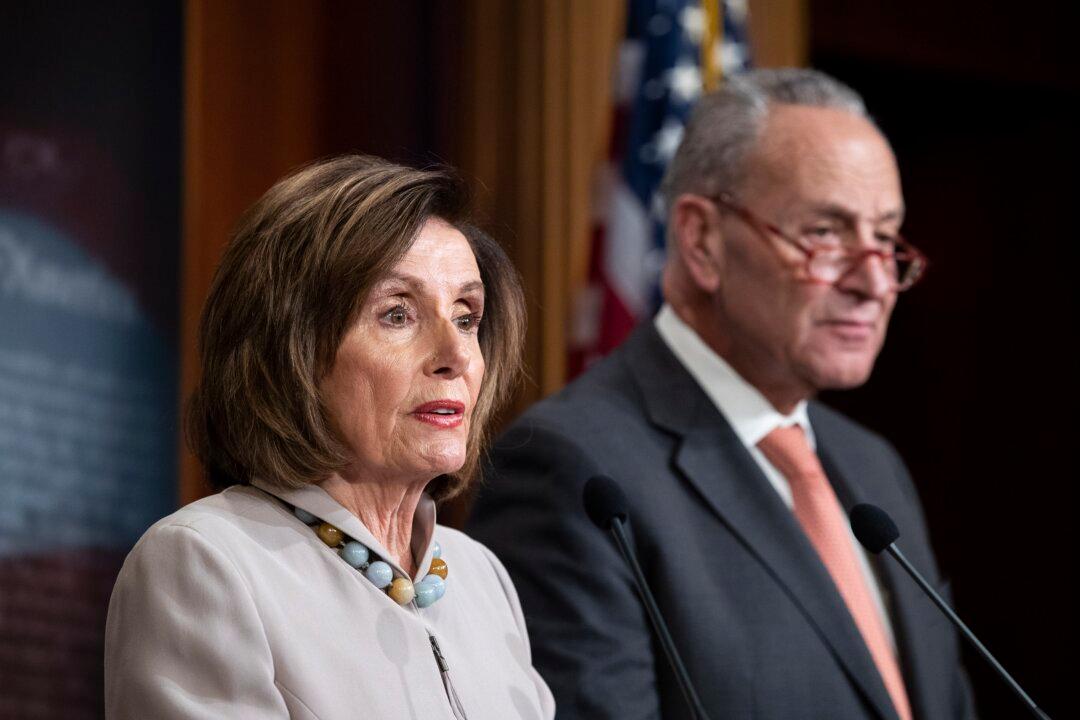House Speaker Nancy Pelosi (D-Calif.) and Senate Minority Leader Sen. Chuck Schumer (D-N.Y.) said in a joint statement that the Trump administration’s request for $250 billion in additional emergency relief for small businesses must include hundreds of billions of dollars for hospitals, state, and local governments, and food assistance.
“The heartbreaking acceleration of the coronavirus crisis demands bold, urgent, and ongoing action from Congress to protect Americans’ lives and livelihoods,” the two lawmakers said in a release.





